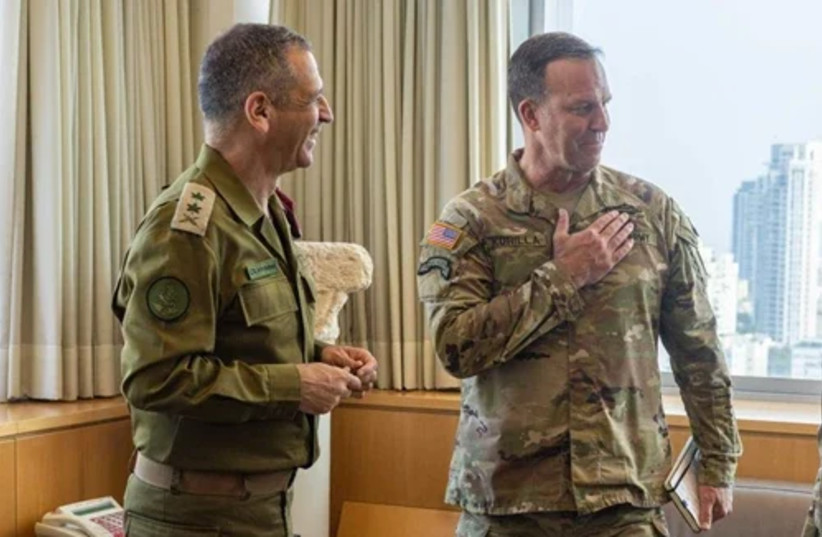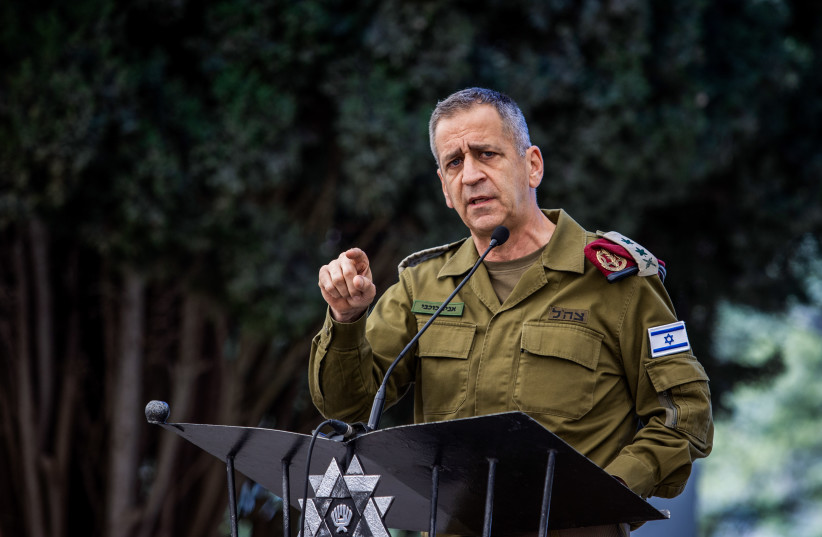Comments come after a senior adviser to Iranian Supreme Leader Ayatollah Ali Khamenei said Iran is technically capable of making a nuclear bomb.

In a clear warning to Iran, IDF Chief of Staff Lt.-Gen. Aviv Kohavi said that the military is preparing for the possibility that it would have to act against Iran’s nuclear program.
“Preparing the home front for war is a task that must be accelerated in the coming years, especially in light of the possibility that we will be required to act against the nuclear threat,” he said Sunday evening during the change of command of the Homefront Command.
“The IDF continues to prepare vigorously for an attack on Iran and must prepare for any development and any scenario. Preparing a military option against the Iranian nuclear program is a moral obligation and a national security order.”
According to Kohavi, the plans for military action against the program “are at the center of preparations in the IDF and include a variety of operational plans, the allocation of many resources, the acquisition of appropriate weapons, intelligence and training.”
“The IDF continues to prepare vigorously for an attack on Iran and must prepare for any development and any scenario. Preparing a military option against the Iranian nuclear program is a moral obligation and a national security order.”
Aviv Kohavi
His comments come after a senior adviser to Iranian Supreme Leader Ayatollah Ali Khamenei told Qatar’s Al Jazeera TV that the Islamic Republic is technically capable of making a nuclear bomb but has not decided whether to build one.

Kamal Kharrazi spoke a day after US President Joe Biden ended his four-day trip to Israel and Saudi Arabia, vowing to stop Iran from “acquiring a nuclear weapon.”
Kharrazi’s comments were a rare suggestion that Iran might have an interest in nuclear weapons, which it has long denied seeking.
“In a few days we were able to enrich uranium up to 60% and we can easily produce 90% enriched uranium…. Iran has the technical means to produce a nuclear bomb but there has been no decision by Iran to build one,” Kharrazi said.
Iran is already enriching to up to 60%, far above a cap of 3.67% under Tehran’s 2015 nuclear deal with world powers. Uranium enriched to 90% is suitable for a nuclear bomb.
Background
In 2018, former US President Donald Trump ditched the nuclear pact, under which Iran curbed its uranium enrichment work, a potential pathway to nuclear weapons, in exchange for relief from economic sanctions.
In reaction to Washington’s withdrawal and its reimposition of harsh sanctions, Tehran started violating the pact’s nuclear restrictions.
Last year, Iran’s intelligence minister said Western pressure could push Tehran to seek nuclear weapons, the development of which Khamenei banned in a fatwa, or religious decree, in the early 2000s.
Iran says it is refining uranium only for civilian energy uses and has said its breaches of the international deal are reversible if the United States lifts sanctions and rejoins the agreement.
The broad outline of a revived deal was essentially agreed to in March after 11 months of indirect talks between Tehran and the Biden administration in Vienna.
Talks then broke down over obstacles including Tehran’s demand that Washington should give guarantees that no US president will abandon the deal, the way Trump did.
Biden cannot promise this because the nuclear deal is a non-binding political understanding, not a legally binding treaty.
“The United States has not provided guarantees on preserving the nuclear deal and this ruins the possibility of any agreement,” Kharrazi said.
Israel, which Iran does not recognize, has threatened to attack Iranian nuclear sites if diplomacy fails to contain Tehran’s nuclear ambitions.
Kohavi has made it clear that he views the JCPOA as dangerous, saying publicly that he has directed the IDF to prepare fresh operational plans to strike Iran in order to stop its nuclear program if necessary.
Kharrazi said Iran would never negotiate its ballistic missile program and regional policy, as demanded by the West and its allies in the Middle East.
“Any targeting of our security from neighboring countries will be met with a direct response to these countries and Israel.”
Content retrieved from: https://www.jpost.com/israeli-news/article-712356.